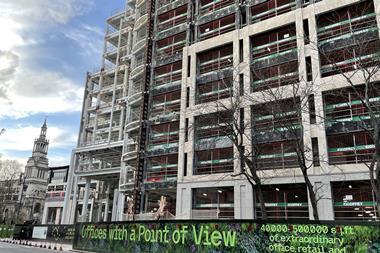May we live in less interesting times. This Wednesday marked the second anniversary of the UK entering lockdown for the first time.

In February 2020, I had an inkling we would. The news was dominated by stories of outbreaks of a new pandemic in China and Italy, and when I flew to New York (to look around The Collective’s co-living sites), hundreds of passengers at the airport were wearing surgical masks.
On my return, as the news grew increasingly ominous, I organised a trial working-from-home day to stress-test our systems. Thank God I did. Putting out a weekly print magazine WFH is no easy feat. The lack of in-person interaction was bad enough. Pivoting from print to on-screen proofing using home broadband, which works at a fraction of the speed of office broadband, soon disabused me of any notion that tech makes everything quicker and easier.
Little did I think that when the instruction came from Boris Johnson to “work from home if you can” that many of us would still be doing so a full two years on. But here we are, adjusting to the latest ‘new normal’ as we wake up from the social and economic coma of Covid and contemplate the nightmare prospect of another, potentially far more catastrophic, global crisis if Russia’s invasion of Ukraine continues to escalate.
You know things are bad when Martin ‘Money Saving Expert’ Lewis admits he is all out of moves and that no amount of financial savviness is going to prevent the most vulnerable in society from having to choose between ‘heating or eating’. With soaring inflation (now at a 30-year high and forecast to peak at 9%), rocketing energy and fuel costs and rising interest rates, soon they may not be the only ones forced to make such stark choices.
The Spring Statement did not offer much comfort. There were some eye-catching consumer-facing initiatives to ease the ‘cost-of-living crisis’, such as the 5p/litre cut to fuel duty, £3,000 increase in the National Insurance threshold and reduction in the basic rate of income tax to 19p by 2024. The abolition of 5% VAT on energy-efficient measures was also welcome. But these initiatives are not likely to mitigate the eyewatering cost hikes most people are facing.
They also enabled the chancellor to neatly swerve the ‘cost of doing business’, which if not a crisis yet soon could be now the final Covid measures are being phased out (as Property Week went to press, the eviction moratorium was due to end today – good news for landlords, not so much for occupiers).
Business rates were barely mentioned, although Rishi Sunak did reiterate the 50% business rates discount for retail, leisure and hospitality as of 1 April (other types of businesses were offered no such support). There was nothing on hospitality VAT, suggesting that next month, it will go back up to 20%, and levelling up and planning were also conspicuous by their absence. None of this bodes well for businesses, which will be hoping Sunak redresses the balance in the Autumn Budget.
In the meantime, it will be a case of ‘physician, heal thyself’. On the evidence of last week’s Mipim in Cannes, many will do just that. But wouldn’t it be great if government was prepared to work more closely with the industry and accept the offer of private capital from the likes of Canada Life rather than viewing it suspiciously? Unfortunately, there appears to be little prospect of that happening any time soon…





























No comments yet